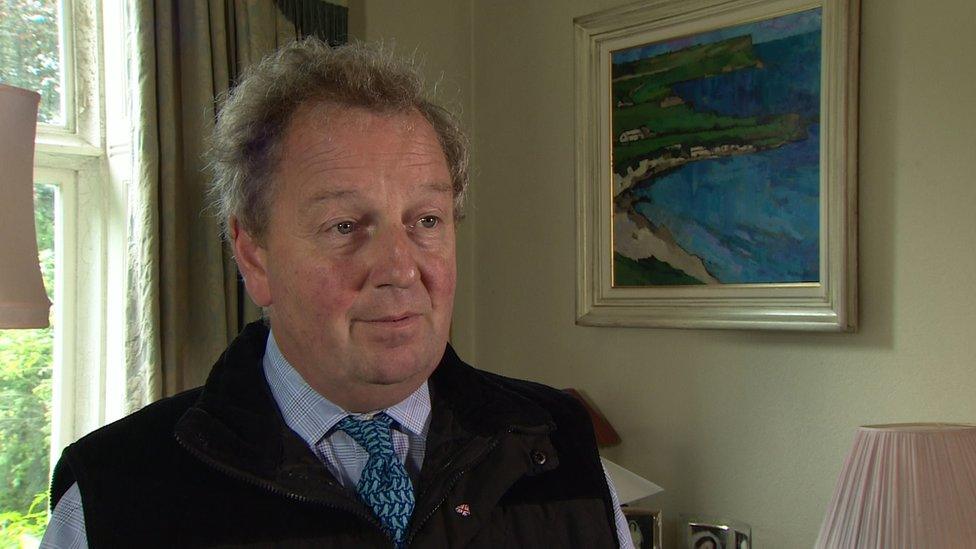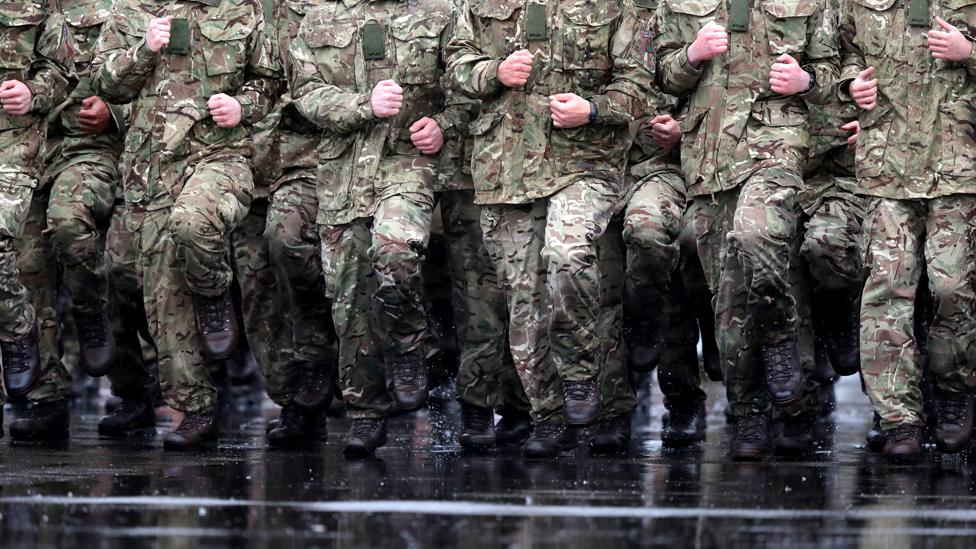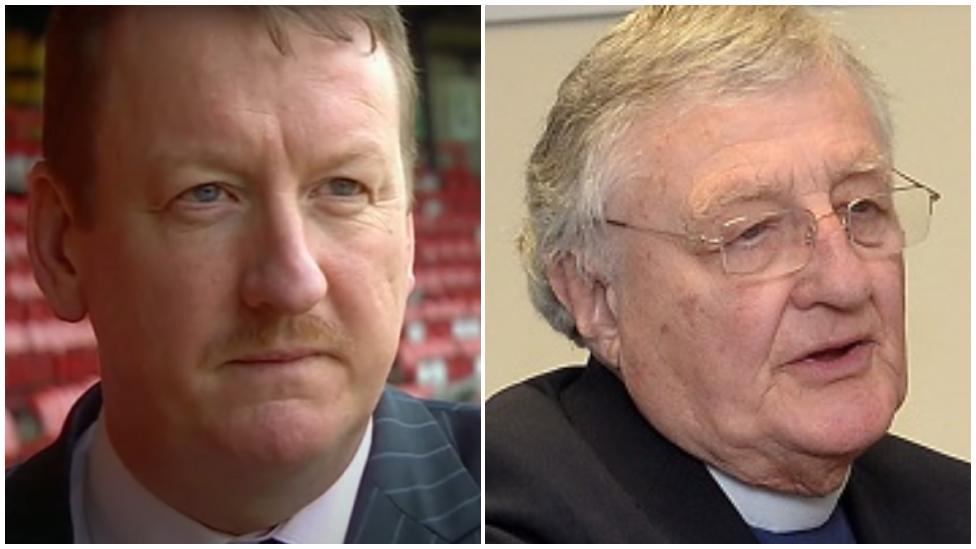Legacy: Veterans Commissioner questions Lambeth Palace talks
- Published

Danny Kinahan previously served in the Blues and Royals Regiment
NI's Veterans Commissioner has said he does not know if he would engage in further discussions on legacy that were branded a "secret talks process" by victims.
The Lambeth Palace event, held in London in November, was hosted by the Archbishop of Canterbury.
Some victims' groups said they had been "excluded" from the talks.
Danny Kinahan, who was appointed veterans commissioner in September, was among those invited to take part.
He said it had "opened the door" to further engagement on a range of issues.
Speaking at a meeting of Westminster's NI Affairs Committee on Wednesday, Mr Kinahan said he had been asked to discuss an "academic set of principles" about how the legacy process could move forward.
"I was pleased to be invited... but I went there to find a lot of groups that weren't represented, there were some good, strong people but to me, it seemed there were many more who should have been there on the victims, veterans and government side."
'Door still open' to resolve past
"It opened the door and we should be aware there are many people there who do want to find a solution, but we have to listen to everybody.
"It's in limbo at the moment - but the door is still open."
Asked if he would participate in future meetings organised at Lambeth Palace, Mr Kinahan said: "I don't know if I'd be included in the future, but where it's left us is that the onus is on all of us to find a solution to legacy, so it doesn't stay with us in the future."
Londonderry city centre manager Jim Roddy and Rev Harold Good, a former president of Ireland's Methodist Church, had organised the event.

There are about 150,000 ex-military personnel in Northern Ireland
At the time, they said it was an extension of years of work on "peace process-related issues" and a continuation of "serious conversations relating to legacy and our troubled past".
Those on the guest list also included representatives of the British and Irish governments, senior republican Sean Murray, loyalist Winston Irvine and Judith Thompson, who was until recently the commissioner for victims and survivors.
No political parties in NI were invited to attend.
Mr Kinahan also told the committee that veterans in NI wanted the past to be dealt with so they could put it "behind them".
Rule of law
He said many veterans had not engaged in the processes as fully as they could have, and urged the government to listen to what they had to say.
"Most veterans would like to see all cases ending but everywhere I go, the rule of law is always in the back of their minds and they want to make sure anyone who has done something wrong goes to court," he added.
"It's about middle ground."
Last March, the British government announced new plans to deal with legacy that would limit many unsolved Troubles investigations.
It divided opinion among NI's political parties, with Sinn Féin and the SDLP saying they would oppose the plans as they were a "significant shift" from the approach signed up to in the Stormont House Agreement in 2014.
Mr Kinahan said he had written to the Irish government to ask for a meeting with Irish Foreign Minister Simon Coveney about finding a way forward.
"Close liaison with them is needed about whatever happens on the way ahead," he added.
Mr Kinahan was appointed Northern Ireland's first veterans commissioner in August.
He is a former Ulster Unionist MP and served as a captain in the Blues and Royals Regiment.
Plans for a commissioner for military veterans were contained in last year's New Decade, New Approach agreement, which helped restore power-sharing in NI after a three-year impasse.
Related topics
- Published5 December 2020

- Published27 August 2020
